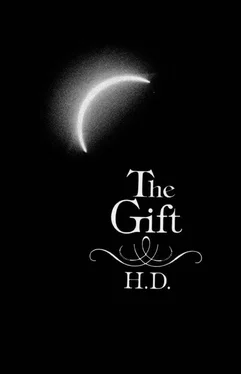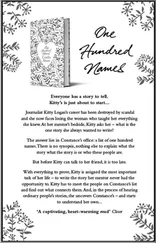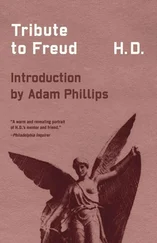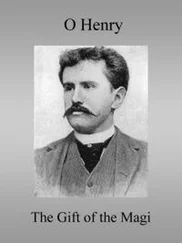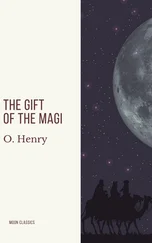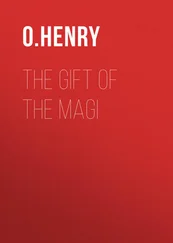Hilda Doolittle - The Gift
Здесь есть возможность читать онлайн «Hilda Doolittle - The Gift» весь текст электронной книги совершенно бесплатно (целиком полную версию без сокращений). В некоторых случаях можно слушать аудио, скачать через торрент в формате fb2 и присутствует краткое содержание. Год выпуска: 1982, Издательство: New Directions Publishing, Жанр: Современная проза, Биографии и Мемуары, на английском языке. Описание произведения, (предисловие) а так же отзывы посетителей доступны на портале библиотеки ЛибКат.
- Название:The Gift
- Автор:
- Издательство:New Directions Publishing
- Жанр:
- Год:1982
- ISBN:нет данных
- Рейтинг книги:3 / 5. Голосов: 1
-
Избранное:Добавить в избранное
- Отзывы:
-
Ваша оценка:
- 60
- 1
- 2
- 3
- 4
- 5
The Gift: краткое содержание, описание и аннотация
Предлагаем к чтению аннотацию, описание, краткое содержание или предисловие (зависит от того, что написал сам автор книги «The Gift»). Если вы не нашли необходимую информацию о книге — напишите в комментариях, мы постараемся отыскать её.
The Gift — читать онлайн бесплатно полную книгу (весь текст) целиком
Ниже представлен текст книги, разбитый по страницам. Система сохранения места последней прочитанной страницы, позволяет с удобством читать онлайн бесплатно книгу «The Gift», без необходимости каждый раз заново искать на чём Вы остановились. Поставьте закладку, и сможете в любой момент перейти на страницу, на которой закончили чтение.
Интервал:
Закладка:
Papa went out to look at the stars at night. He measured them or measured something, we didn’t know quite what. We could see what Papalie was doing with his microscope on his study table. But when Papa took us into his little domed house — with a dome like the Eskimo made of ice over their snow huts — and we asked to look into his telescope, he said that we would see nothing; you could not see what he was looking at, or looking for, in the daytime. Papa looked at a thermometer and opened or closed a shutter (that opened with ropes that pulled) in the curved roof or dome of his little house, which was built higher up the mountains, above the university buildings, the other side of the river. When we kept on asking him to let us see, he did let us see, but it was as he had told us; there was only a white glare and nothing to be seen and it hurt your eyes. It would be too late to go over there at night, he said, and anyhow, at night he was busy.
I can not say that a story called Bluebeard that Ida read us from one of the fairy tales, actually linked up in thought — how could it? — with our kind father. There was a man called Bluebeard , and he murdered his wives. How was it that Edith and Alice and the Lady (the mother of Alfred and Eric) all belonged to Papa and were there in the graveyard? No, of course, I did not actually put this two-and-two together.
“But why did they call him Bluebeard?” I asked Eric, who had time to answer questions that other people could not or would not answer. “His beard, was blue, was it?”
“No,” said Eric, “it was just a way of saying that he had a very black beard.”
Papa had a black beard. (A few years later, it was to turn white, almost overnight, but that comes later.) There was a man with a black beard and a dead wife or dead wives and there was Edith and there was Alice and there was the Lady whose name, written on stone, was, Ida told us (“but do not ask your mother questions”), Martha. The name Martha was written on a stone and Alice was written and Edith. My name was Hilda; Papa found the name in the dictionary, he said. He said he ran his finger down the names in the back of the dictionary, and his finger stopped at Huldah and then went back up the line to Hilda. What would I have been, who would I have been, if my initial had come at the beginning and he had put his finger on Alice? Had he put his finger on Alice?
Papa went out of the house “like a thief” as he used to say, “or an astronomer,” every evening if the stars were shining. If the stars were shining — O God of stars, let the stars shine — then Mama would lift the lamp from the center round-table in the sitting room and fold up the embroidered table-cover and say to Gilbert or Harold or Hilda, “Just take this pile of books, don’t drop them, and put them on the piano; no, the piano is open, you can’t reach up, not the floor, you don’t put books on the floor, no, not the chair — here” and she would take them back and pile them on top of other books on the bookcase in the corner.
There was the cuckoo clock that would strike (too soon) eight, to-bed. There was the desk in the corner, in one of the compartments of which there was a little box with some sort of eggs, we were not sure what kind of eggs, “But they won’t hatch now,” Papalie had said. Mama thought they might be dangerous, be snake’s eggs.
“But if they won’t hatch. Mama, why don’t you throw them away?”
“Oh — give me that box, I told you not to touch that box.”
“But you said, Papalie said, they wouldn’t hatch, can’t I throw them in the garden?”
“No — no.”
“Why not?”
“They might hatch.”
“I thought you said, Papalie said, they wouldn’t hatch now.”
“He said, he thought they wouldn’t hatch now.”
“Then they might hatch — they might hatch here in the desk?”
“No, no, no — put that box down. Don’t shake it.”
“But I thought you said …”
Papalie had an alligator in their attic, in a tank with thick netting, but anyhow, “you children must not go up there any more.”
“But the alligator is asleep.”
Mamalie would tell us how someone who knew Papalie had sent him two alligators, as small as very large lizards, in a cigar box from Florida. They were wrapped in Florida moss. Their names were Castor and Pollux; one had died and was varnished and mounted on a board and hung over the slippery horsehair sofa in Papalie’s study. Once a tarantula had dropped out of a bunch of bananas at Mr. Luckenbach’s, the grocer on the corner.
Mr. Luckenbach had caught it in a shoe box and rushed across the street to ask Papalie what it was. Everyone brought things like that to our grandfather, because he had a microscope and studied things and drew pictures of branches of moss that you could not see with your eyes. He put them on a glass slide or pressed a drop of water from a bottle (that he had brought back from trips to the mountains) between two glass slides. That (in time, it was explained) was freshwater algae , a sort of moss, invisible (for the most part) to the naked eye. The apple of my eye. He was the naked eye, he was the apple of God’s eye. He was a minister, he read things out of the Bible, he said I am the light of the world when the doors opened at the far end of the church and the trays of lighted beeswax candles were brought into the church by the Sisters in their caps and aprons, while Uncle Fred in the gallery, at the organ was playing very softly Holy Night .
When Mama folded the embroidered table-cover and put it on top of the books, she might get out the jack-straws or she might get out of a box with a horseshoe that was a magnet and drew little bits of specks of iron in patterns after it. But she might turn over the cardboard box of yellow squares and say, “We will have some anagrams; Gilbert, you must help now.”
There was not one single word that I could spell, not one, not c-a-t even, but if I shouldered over to Gilbert and clutched the edge of the table, I could from time to time select a letter; sometimes it was the right one, not very often.
“Mimmie, he’s spelt a word,” says Mama very proudly to Mamalie, our grandmother, or if it’s Aunt Jennie, “Jean, look he’s spelt dog,” but Jean will push it back and say, “d-a-g doesn’t spell anything that I know of; Sister would know an a from an o if you don’t, Gibbie,” and it might even be perceived that miraculously, a round shape in black, on the yellow square of cardboard, was somehow alone and staring at me, by Aunt Jennie’s elbow.
It was a game, it was a way of making words out of words, but what it was was a way of spelling words, in fact it was a spell . The cuckoo clock would not strike; it could not, because the world had stopped. It was not frozen in time, it was like one of Papalie’s water-drops that he had brought down from the mountains or from a trip to the Delaware Water Gap, in a jar. It was a drop of living and eternal life, perfected there; it was living, complete, not to be dried up in memory like pressed moss — Papalie had pressed moss, too. But there was a difference between Papalie’s pressed moss and the things that shone in the crystal lens of his microscope, on the glass plate that a moment ago had been empty and just two pieces of glass, like small empty magic lantern slides, stuck together.
When Papalie lifted us, one by one in turn, to kneel on the chair by his worktable, we saw that it was true what he said, we saw that where there is nothing, there is something. We saw that an empty drop of water spread out branches, bright green or vermillion, in shape like a branch of a Christmas tree or in shape like a squashed peony or in shape like a lot of little green-glass beads, strung on a thick stem.
Читать дальшеИнтервал:
Закладка:
Похожие книги на «The Gift»
Представляем Вашему вниманию похожие книги на «The Gift» списком для выбора. Мы отобрали схожую по названию и смыслу литературу в надежде предоставить читателям больше вариантов отыскать новые, интересные, ещё непрочитанные произведения.
Обсуждение, отзывы о книге «The Gift» и просто собственные мнения читателей. Оставьте ваши комментарии, напишите, что Вы думаете о произведении, его смысле или главных героях. Укажите что конкретно понравилось, а что нет, и почему Вы так считаете.
